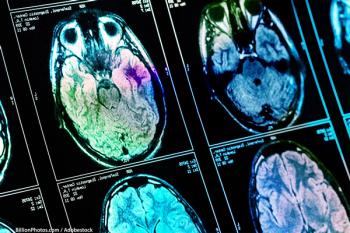
Oncology NEWS International
- Oncology NEWS International Vol 15 No 10
- Volume 15
- Issue 10
Brain Cancer Cells Attract Stem Cells for Angiogenesis
New research shows that in order to grow, gliomas attract stem cells circulating in the blood to develop new blood vessels, as well as using blood vessels from the brain itself.
COLUMBUS, OhioNew research shows that in order to grow, gliomas attract stem cells circulating in the blood to develop new blood vessels, as well as using blood vessels from the brain itself. The animal study found that in gliomas, about 75% of new blood vessels in the tumor come from the surrounding brain, but that about 25% come from progenitor cells. The research also showed that the progenitor cells are drawn to the tumor because the tumor cells secrete stromal-derived factor-1 (SDF-1), a factor that regulates vasculogenesis.
"These findings indicate that blocking blood vessel growth in tumors will probably require multiple drugs, some that inhibit the growth of blood vessels coming from the surrounding brain and co-opted into the tumor, and some that inhibit blood vessels that form from endothelial progenitor cells," said principal investigator, E. Antonio Chiocca, MD, PhD, professor of neurological surgery and co-director of Ohio State University's Dardinger Center for Neuro-oncology. The research, published online September 15 in the journal Cancer Research, was largely performed while Dr. Chiocca was at Massachusetts General Hospital and Harvard Medical School, in collaboration with Drs. David Scadden, Manish Aghi, and Kenneth Cohen.
The researchers transferred fluorescent tagged bone marrow cells from one set of mice into another in which the bone marrow was destroyed. Mouse glioma cells were then implanted into the animals' brains and under the skin. As the tumors grew, blood vessels that developed from the progenitor cells fluoresced, while those that developed from the brain did not. Further research showed that "if the tumor doesn't make SDF-1, the progenitor cells won't travel to it," Dr. Chiocca commented.
Articles in this issue
over 19 years ago
Recombinant MAGE-A3 Cancer Immunotherapy Promisingover 19 years ago
WHI Calcium/Vit D Trial:over 19 years ago
Negative Lymph Nodes Predict Survival in Stage III Colon Caover 19 years ago
Oophorectomy Value Varies by BRCA Typeover 19 years ago
FDA Approves Vectibix for Metastatic Colon Caover 19 years ago
NCCN Presents Hematologic Ca Congressover 19 years ago
Interim Results for MediGene's Oncolytic Virus NV1020over 19 years ago
GSK Files NDA for Tykerb for Advanced Breast Cancer Rxover 19 years ago
Armstrong to Run New York City MarathonNewsletter
Stay up to date on recent advances in the multidisciplinary approach to cancer.






































